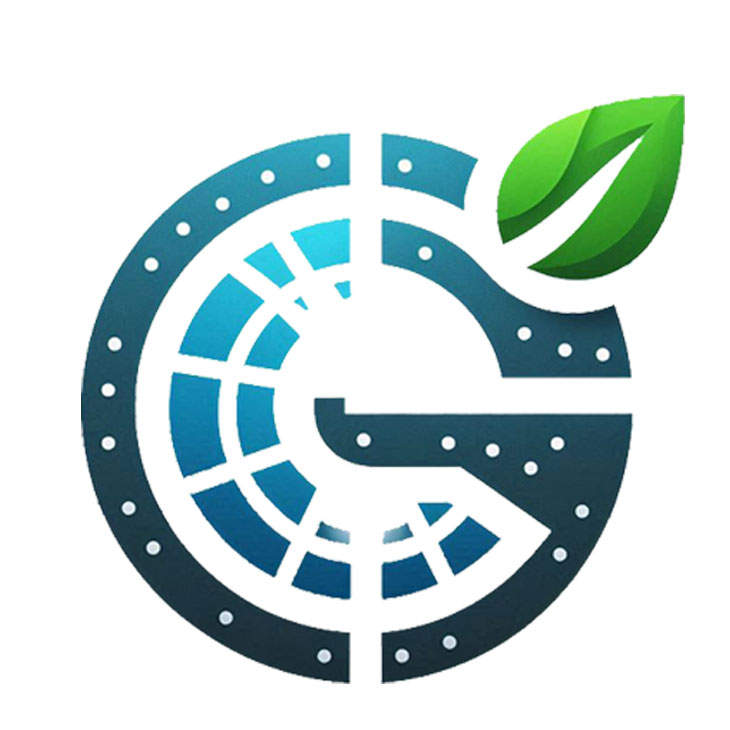
Water Management Sustainable
Water Management Sustainable in cleantech involves various subcategories that address different aspects of efficiently managing water resources while minimizing environmental impact and environmental sustainability.
- Here are several categories and subcategories of Water Management Sustainable development within the cleantech that you can use as a Features when you are Add Listing in Global Cleantech Directory Platform. Water Management Sustainable subcategories help people’s searching in the Global Cleantech Directory Platform by categorizing and finding the relevant wide range of cleantech and strategies used in Water Management Sustainable development aiming to optimize water use, enhance water quality, and ensure the resilience of water systems in the face of environmental challenges.
1. Water Purification and Treatment:
- – Advanced Filtration: Technologies such as membrane filtration, including reverse osmosis and nanofiltration. Technologies for removing impurities from water, including reverse osmosis, UV purification, and carbon filters.
– Disinfection: Use of ultraviolet (UV) light, ozonation, and advanced oxidation processes.
– Biological Treatment: Biofiltration, constructed wetlands, and microbial fuel cells. Utilizing biological processes, such as bioreactors and constructed wetlands, to treat wastewater.
– Desalination: Energy-efficient desalination methods like forward osmosis and solar desalination. Converting seawater into fresh water through processes like reverse osmosis and distillation.
– Chemical Treatment: Using chemicals to remove contaminants and disinfect water.
2. Water Recycling and Reuse:
- – Greywater Recycling: Systems for treating and reusing greywater from baths, sinks, washing machines and laundry for non-potable purposes.
– Blackwater Treatment: Advanced treatment processes to recycle wastewater from toilets for potable and non-potable uses.
– Industrial Water Reuse: Closed-loop systems for recycling water in industrial processes.
– Rainwater Harvesting: Collecting and storing rainwater for various uses.
3. Water-Efficient Technologies:
- – Smart Irrigation Systems: Sensors and IoT-enabled systems for precise irrigation.
– Low-Flow Fixtures: Faucets, showerheads, and toilets designed to use less water.
– Water-Efficient Appliances: Washing machines and dishwashers with reduced water consumption.
4. Stormwater Management:
- – Green Infrastructure: Utilizing natural processes and green spaces to manage stormwater, such as green roofs, permeable pavements, and bioswales.
– Rainwater Harvesting: Systems for collecting and storing rainwater for non-potable uses. Structures to temporarily store stormwater and control its release.
– Flood Control Systems: Advanced flood barriers, retention basins, and real-time monitoring systems.
5. Water Monitoring and Management Systems:
- – Smart Water Meters: Devices that provide real-time data on water usage.
– Leak Detection Technologies: Systems and technologies to identify and fix leaks in water distribution networks. Acoustic sensors, pressure sensors, and smart meters to detect leaks.
– Integrated Water Management Platforms: Software for managing water resources, predicting demand, and optimizing distribution.
– Water-Efficient Appliances: Designing household and industrial appliances to use less water.
6. Agricultural Water Management:
- – Drip Irrigation: Efficient irrigation systems that deliver water directly to the plant roots.
– Soil Moisture Sensors: Devices that help optimize irrigation schedules based on soil moisture levels.
– Drought-Resistant Crops: Development and use of crops that require less water.
– Smart Irrigation Systems: Using technology to optimize water usage in agriculture and landscaping.
7. Water Resource Management:Hydrogen Energy:
- – Watershed Management: Strategies for maintaining healthy watersheds through sustainable land use practices.
– Aquifer Recharge: Techniques to enhance groundwater replenishment, such as managed aquifer recharge (MAR).
– Hydrological Modeling: Advanced modeling to predict water availability and manage resources.
8. Wastewater Treatment and Management:
- – Decentralized Treatment Systems: Small-scale, localized wastewater treatment options.
– Energy Recovery from Wastewater: Technologies that capture energy from wastewater treatment processes, such as anaerobic digestion.
– Nutrient Recovery: Processes to recover nutrients like nitrogen and phosphorus from wastewater for use as fertilizers.

Empowering a Sustainable Future
Innovate, Connect, Transform
Recommended Tags
Water Management Sustainable
- Here are some commonly used tags in the Water Management Sustainable development within the cleantech that you can use when you are Add Listing in Global Cleantech Directory Platform. Water Management Sustainable tags help to categorize and find relevant cleantech and often focus on sustainability, innovation, and efficiency when you are searching in the Global Cleantech Directory Platform.
Water Efficiency
- Low Flow Fixtures
Water Saving Devices
Efficient Irrigation
Smart Irrigation Systems
Drip Irrigation
Water Usage Monitoring
Water Conservation
- Rainwater Harvesting
Greywater Recycling
Xeriscaping
Drought Resistant Plants
Water Conservation Education
Water Saving Landscaping
Water Quality
- Water Filtration
Non Toxic Cleaning
Pollution Prevention
Stormwater Filtration
Water Testing
Aquifer Protection
Wastewater Management
- Wastewater Treatment
On Site Treatment Systems
Constructed Wetlands
Bioswales
Septic Systems
Blackwater Recycling
Stormwater Management
- Permeable Paving
Green Roofs
Rain Gardens
Stormwater Retention Ponds
Bioswales
Urban Drainage Systems
Sustainable Infrastructure
- Green Infrastructure
Smart Water Grids
Leak Detection Systems
Pipe Rehabilitation
Water Efficient Appliances
Sustainable Water Systems
Policy and Regulation
- Water Use Regulations
Sustainable Water Policies
Water Rights Management
Drought Regulations
Water Pricing
Conservation Incentives
Community Initiatives
- Community Education Programs
Water Stewardship
Public Awareness Campaigns
Volunteer Water Monitoring
Community Rain Gardens
Collaborative Water Management
Climate Resilience
- Flood Risk Management
Drought Preparedness
Climate Resilient Infrastructure
Watershed Management
Resilient Water Supply
Sea Level Rise Adaptation
Innovation and Technology
- Water Recycling Technologies
Desalination
Advanced Metering Infrastructure
IoT Water Management
Smart Water Solutions
Water Efficiency Innovations
Popular Q&A
Water Management Sustainable
- Here are some popular Q&A topics for Water Management Sustainable development within the context of cleantech.
Cleantech in water management refers to technologies and processes that improve water efficiency, reduce pollution, and promote sustainable water use through innovative solutions.
Smart water meters use sensors and wireless communication to provide real-time data on water usage, helping consumers and utilities monitor consumption and detect leaks.
IoT devices can monitor water quality, detect leaks, manage irrigation systems, and optimize water distribution, leading to increased efficiency and reduced waste.
Rainwater harvesting collects and stores rainwater for later use, reducing dependence on municipal water supplies and alleviating pressure on natural water resources.
Greywater recycling involves treating and reusing wastewater from sinks, showers, and washing machines for non-potable purposes such as irrigation and toilet flushing, reducing overall water consumption.
Desalination technologies, such as reverse osmosis and distillation, remove salt and impurities from seawater or brackish water to produce fresh water suitable for drinking and irrigation.
Constructed and natural wetlands act as natural filters, removing pollutants and sediments from water, improving water quality, and providing habitat for wildlife.
AI can analyze large datasets to predict water demand, optimize irrigation schedules, detect leaks, and enhance water treatment processes, improving overall efficiency and sustainability.
Water quality monitoring ensures that water is safe for consumption and use, helps detect contamination early, and supports compliance with environmental regulations.
Green infrastructure, such as green roofs, permeable pavements, and bioswales, absorbs and filters stormwater, reducing runoff, mitigating flooding, and improving water quality.
UV and ozone treatments disinfect water by killing bacteria, viruses, and other pathogens without the use of harmful chemicals, making them effective and environmentally friendly purification methods.
Drip irrigation delivers water directly to the plant roots, minimizing evaporation and runoff, and ensuring that water is used efficiently and effectively for crop growth.
Challenges include high initial costs, technological integration, maintenance requirements, and the need for public awareness and acceptance of new technologies.
Modern wastewater treatment plants use advanced processes like membrane filtration, anaerobic digestion, and nutrient recovery to treat sewage efficiently and produce clean water and energy.
Policies and regulations can provide incentives for adopting clean technologies, set standards for water quality and efficiency, and support research and development in sustainable water management practices.
Policies and regulations can provide incentives for adopting clean technologies, set standards for water quality and efficiency, and support research and development in sustainable water management practices.
- These questions highlight various aspects of Water Management Sustainable within the cleantech framework, focusing on innovative solutions and their benefits, challenges, and applications in achieving sustainable water use.
- Explore the link to learn about Water Management Sustainable category and discover related insights from our Annual EarthDay Conference Speech

